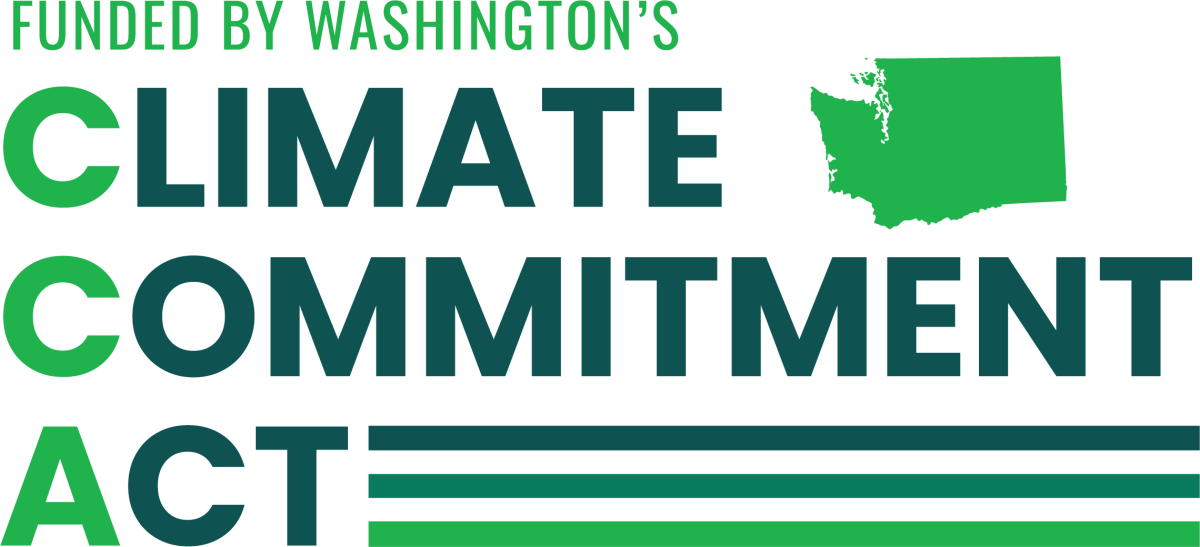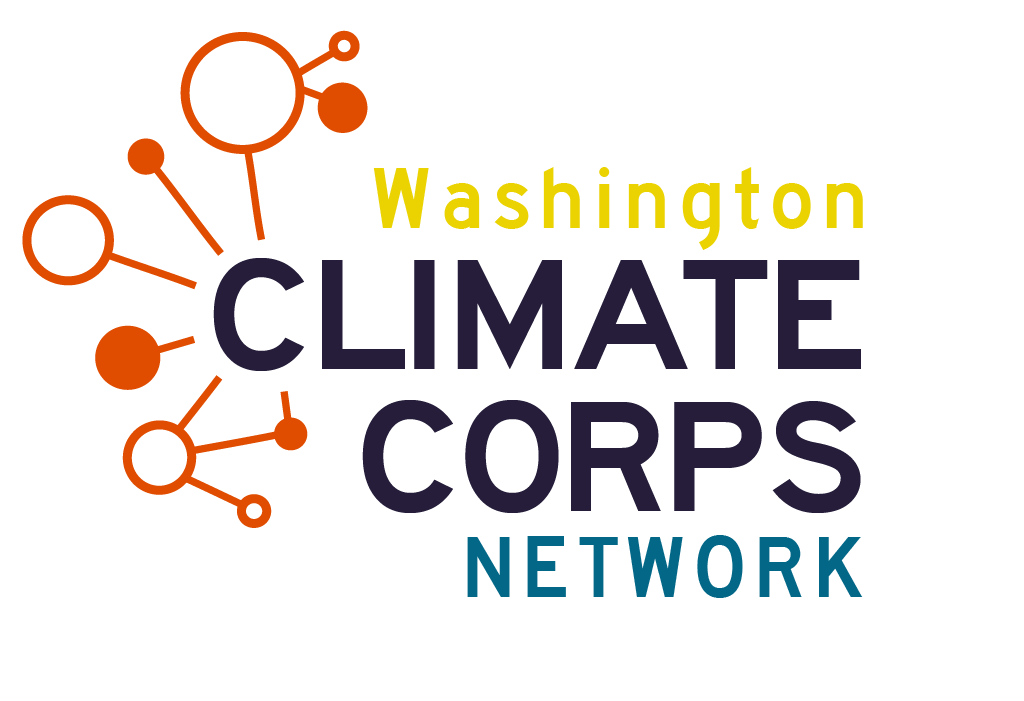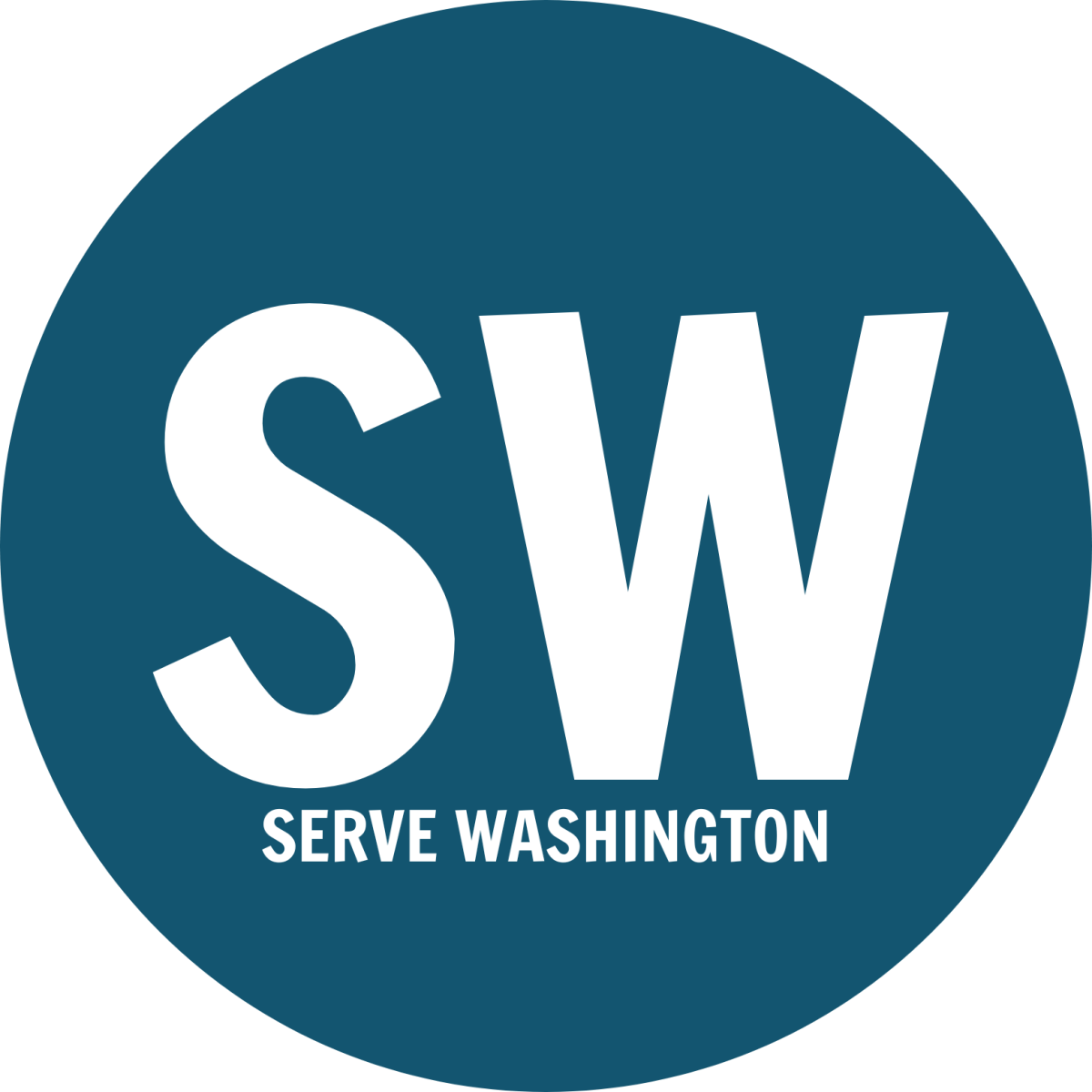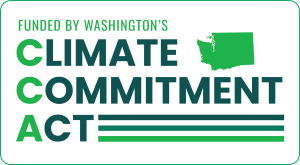Washington Climate Corps Network awards $1,172,000 in grants for service projects developing climate-ready communities
July 25, 2025
OLYMPIA—Serve Washington’s Washington Climate Corps Network (WCCN) has awarded $1,172,000 in grants to eight community-based organizations to support service projects that build resilience to climate change.
Grants from the WCCN are made possible through funding from the Washington Climate Commitment Act (CCA). Revenue from the CCA supports projects, programs, and jobs that reduce pollution, improve the health, safety, and resilience of neighborhoods and communities across Washington.
“The Washington Climate Corps Network is committed to ensuring funding from the Climate Commitment Act supports projects that can lead to meaningful and lasting impact,” said Washington Climate Corps Network Director Matt Glazewski. “The organizations receiving this support are at the forefront of local efforts to reduce the harmful impacts of climate change. Their projects are rooted in community needs and reflect the kind of innovation our state needs to build a more climate-resilient future.”
The WCCN is a network of organizations, public agencies, schools, and volunteers implementing service projects to strengthen their community’s resilience to the harmful effects of climate change. Members serving with WCCN-affiliated programs help build climate-resilient communities, economies, and ecosystems while receiving training, education and career networking.
WCCN programs support climate-related service opportunities in “overburdened communities” — areas where populations face combined, multiple environmental harms and health impacts. People serving in WCCN programs will work on projects such as clean diesel locomotive retrofits, participate in construction trade pre-apprenticeships, author climate action plans, and more.
WCCN accepts applications for grant funding on an ongoing basis. Anyone interested in applying for funding should visit the WCCN webpage for instructions.
Organizations receiving WCCN funding
EarthCorps: $190,000
Funding from the WCCN will support EarthCorps projects based in Pierce, Skagit and Snohomish Counties improving blue carbon ecosystems. These are coastal and marine environments that provide a natural way of reducing the impact of greenhouse gases by capturing and sequestering carbon. When these ecosystems are damaged, carbon is emitted back into the atmosphere, accelerating the effects of climate change.
EarthCorps will use WCCN funding to support projects that restore degraded estuaries’ ability to sequester carbon, buffer against flooding and erosion, improve water quality, and provide habitat for species like salmon. Funding will also provide training on climate change for young people from vulnerable populations.
Gonzaga Institute for Climate, Water and Environment: $105,000
The Gonzaga Institute for Climate, Water and Environment will use WCCN funds to help Inland Northwest communities prepare for and respond to climate-driven events like extreme heat and wildfire smoke.
The grant will support recruitment, training, and stipends for WCCN Architects (young adults, age 17-31) to develop “resilience hubs” to help communities understand, prepare for and respond to climate-driven events through public trainings, workshops, and resource distribution. Resilience hubs are resources that help educate, create a point of collaboration, provide sustainable and continuous energy, and shelter from extreme weather and natural disasters.
Phoenix Conservancy: $100,000
The Phoenix Conservancy will use WCCN funds to implement a service project bringing biochar production to the Palouse regions of Washington and Idaho to fight agricultural production challenges caused by wildfires and drought.
Biochar is a charcoal-like substance made from pyrolysis, the breakdown of organic matter at high temperatures in the absence of oxygen. It is made using organic materials like wood scraps, yard waste, weeds, paper and cardboard. As a soil additive, Biochar conserves water, reduces soil acidity, and can keep carbon out of the atmosphere for centuries.
The Phoenix Conservancy will offer services to residents in southeast Washington to collect organic waste for use in biochar production. Services will include free training and support to rural landowners about the production and use of biochar as an agricultural commodity.
Port of Pend Oreille dba Pend Oreille Valley Railroad: $200,000
The Pend Oreille Valley Railroad will start a year-long service-based workforce development program to equip three WCCN members with skills, mentorship and industry certifications in sustainable freight and transportation. The program will have emphasize clean diesel and renewable engine technologies, with hands-on experience in Tier 3 and Tier 4 locomotive conversions, track and rail maintenance, and foundational conductor skills.
San Juan Island Conservation District: $75,000
The San Juan Islands Conservation District will use WCCN funds to implement training and service projects on the San Juan Islands in partnership with the Lummi Reservation. The district’s Islands Conservation Corps (ICC) and the Lummi Nation’s Coast Salish Guardians programs will further environmental stewardship at the intersection of climate and culture. WCCN funds will recruit members, provide training, and implement ecological restoration projects supported by both Western and Indigenous sciences. The ICC and Coast Salish Guardians program work on a consortium of restoration issues, most notably biochar production and riparian and near shore restoration.
Stevens County Youth Outreach: $150,000
The Stevens County Youth Outreach program will use WCCN funding to support a project in its “All Seasons Climate Corps,” a youth-led initiative delivering climate resilience projects while creating employment and leadership pathways for young people in Stevens and Ferry counties.
This project will advance climate resilience by increasing the ignition resistance of homes and communities to wildfires. The project will offer public education, assessments, and outreach on topics like wildfire prevention and preparedness, storm and flood preparedness, and water conservation.
Western Washington University: $280,000
WCCN funds will support the university’s Sustainability Pathways program. This interdisciplinary program engages rural youth, undergraduate students and young adults living in the Methow and Okanogan valleys in opportunities to work in climate resiliency and sustainability fields.
The grant will provide local partners with Architects (young adults, age 17-31)to address critical gaps and projects supporting their community’s climate resilience goals. Architects will receive training and hands-on service experiences to connect young people to careers in preserving or restoring the environment, reducing pollution, and conserving natural resources.
Whatcom Working Waterfront Foundation: $72,000
WCCN funding will support the Whatcom Working Waterfront Foundation’s Buoyant Beginnings Pre-Apprenticeship program. This program is implemented alongside maritime industry partners and the Lummi Nation. This program pairs young adults with maritime partners to offer education, technical skills, and job shadowing to prepare for technical marine careers. Funding will also develop informational programs to educate the public about the foundation’s efforts to mitigate the disparate impacts of climate change in coastal communities.
# # #
About the Washington Climate Corps Network: The WCCN is supported with funding from Washington’s Climate Commitment Act, CCA. The CCA supports Washington’s climate action efforts by putting cap-and-invest dollars to work reducing climate pollution, creating jobs, and improving public health. Information about the CCA is available at climate.wa.gov.
About Serve Washington: Serve Washington is the state commission on national and community service and is a division of the Washington State Office of Financial Management. Serve Washington advances national service, volunteerism, and civic engagement to improve lives; expands opportunities to meet the local critical needs of Washingtonians, and strengthens community capacity while creating healthy and resilient communities. We promote and grow volunteer efforts in Washington. These include AmeriCorps, Washington Climate Corps Network and Community Emergency Response Team(CERT) programs.



Contact:
(564) 200-2131
Submitted By:
Hayden M




